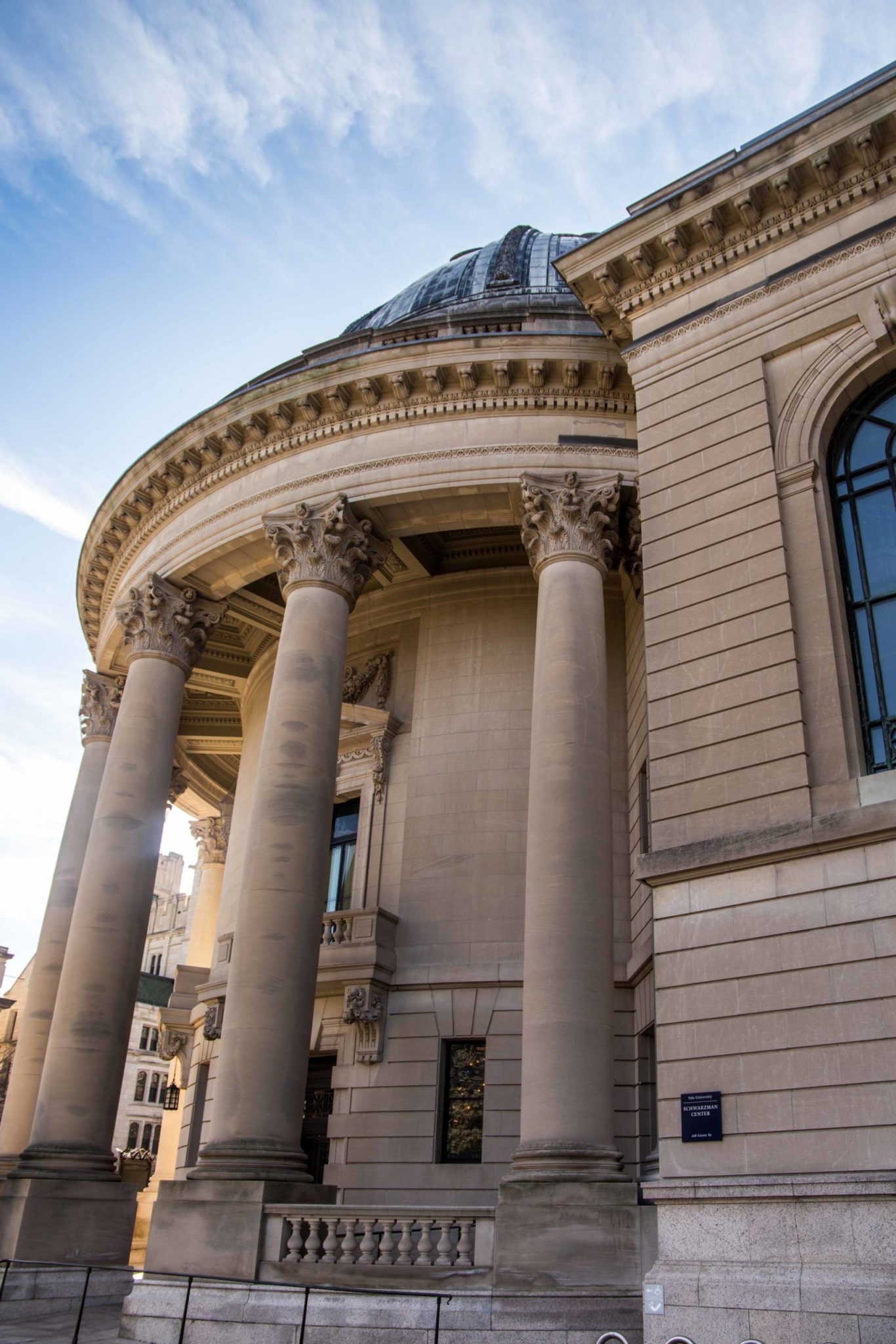
Lucas Holter
As the United States Department of Education investigates Yale for failing to report foreign funds between 2014 and 2017, Education Department data shows that international donors gave significant sums to the University in recent years for which reports are available.
Missing donation reports form the central premise of the DOE’s ongoing investigation into Yale and other universities for failing to make public foreign donations. Per the Education Department, Yale failed to disclose foreign donation data between 2014 and 2017, even though under federal law, universities are required to report foreign donations that exceed $250,000. In an email to the News earlier this month, University spokesperson Karen Peart confirmed Yale’s oversight and wrote that after becoming aware of the situation in November, the University believes its reporting is “current and complete.”
According to Vice President for Global Strategy Pericles Lewis — whose work abroad means he occasionally meets with foreign donors — the foreign donor profile closely relates to that of a domestic donor.
“In general, international donors want to support the same kinds of things as domestic donors, including financial aid, support for professors’ salaries and research that pushes forward the bounds of human knowledge,” Lewis told the News in an email. “Yale’s mission resonates with people all over the world.”
According to Department of Education data, the 157 donations to Yale in 2013, 2018 and 2019 came from 24 countries. England contributed the largest share of gifts, which totaled 26. Closely following England is China with 22 gifts, and the University also received 15 donations each from Hong Kong and France. Germany and Switzerland rounded out the donations in the double digits, with each country contributing 11 unique gifts to the University.
Anonymous donors supplied 100 of the reported 157 gifts, and they came from donors ranging from individuals to corporations. According to Education Department data, the largest foreign gift the University received came from Hong Kong in December 2018, totaling $14,450,000.00 from “Anonymous [donor] #24.”
According to Vice President for Development Joan O’Neill, gifts are listed as “anonymous” to avoid donors’ names appearing on public databases. While the University — and often the Yale community at large — knows the identity of these donors, some donors may also request that their names be shared only among the administrators and faculty who will implement the particular gift.
O’Neill told the News in an email that personal reasons often accompany requests to remain publicly nameless, such as a desire to avoid solicitations from other organizations. She added that requesting anonymity is not unique to foreign donors, as domestic donors sometimes also request discretion.
“Many of our donors live outside of the U.S. and have the same relationship as our U.S. donors,” O’Neill wrote. “They may be alumni, parents or friends … We engage possible donors by exciting them with the important work that the University is doing. We do this through events, through individual meetings and sometimes with the help of volunteers. This is true in the U.S. and abroad.”
Gifts listed by the Education Department are split into two categories — monetary gifts and contracts. According to O’Neill, while gifts are generally understood as unilateral, contracts come with certain strings attached, such as certain reporting expectations or the stipulation that the University will return unused funds.
O’Neill added that several of Yale’s professional schools have especially strong relationships abroad, “related to their longstanding commitment to admitting non-U.S. students who then become alumni and related to the focus of research and collaborations in many of these schools.”
One 2013 donation came from the Dallah Albaraka Group, a corporation based in Jeddah, Saudi Arabia, whose chief executive Abdallah Kamel initially donated funding that launched the Abdallah S. Kamel Center for the Study of Islamic Law and Civilization at the Yale Law School.
Other gifts came from individuals including current Yale Corporation member Lei Zhang SOM ’02 GRD ’02 and member of the President’s Council on International Activities Petr Aven, who heads Alfa Bank, Russia’s largest commercial bank. Foundations and corporations also contributed over the past five years, with multiple donations flowing in from the France-based Leducq Foundation and the U.S.-Israel Binational Science Foundation in Jerusalem.
On Feb. 11, the Department of Education sent a letter to University President Peter Salovey requesting records on donations totaling $375 million from foreign governments. The request falls under Section 117 of the Higher Education Act of 1965, which increased federal funding to universities, created scholarships and established low-interest student loans.
Per a Feb. 11 letter to Salovey, Yale has 60 days to produce all of the requested documentation on its foreign gifts — or face civil or criminal penalties by the U.S. Department of Justice.
Valerie Pavilonis | valerie.pavilonis@yale.edu







